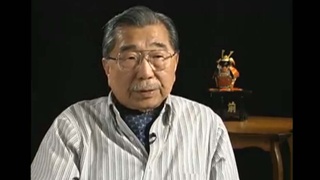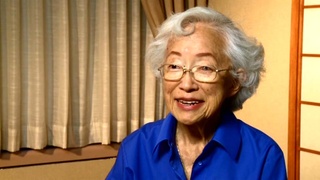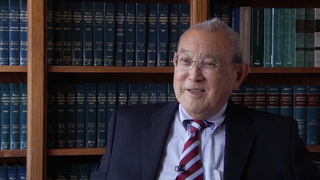Interviews
Treatment of Kibei after return to United States
They were more or less curious because I know... ask me what it say in Japanese, something like that, ask a question, see, so very friendly. But the one not friendly probably stay away from me. But I didn't get any direct insult. I didn't experience, so I never thought of that. But some, well, I think other Kibeis experienced, too. They more or less looked down on it, see. It may have a more education but not in English, in Japanese, so this, as far as knowledge goes, maybe smarter, but then yet, still, Kibei is discriminated, I know.
Date: December 17 & 18, 2003
Location: Washington, US
Interviewer: Alice Ito, Tom Ikeda
Contributed by: Denshō: The Japanese American Legacy Project.
Explore More Videos

Thoughts on relationship between Japanese Peruvians and Japanese Americans at Crystal City, Texas
(1937 - 2021) Teacher

Father interrogated by FBI, but not taken away
(1925 - 2018) Nisei educator from Hawai‘i

The political effects on Nikkei during the war (Spanish)
(b. 1950) Nisei Chilean, Businessman

Government sold Japanese Canadian properties for little money
(b. 1928) Doctor. Former Chair of the Japanese Canadian Redress Foundation.

Questioning Curfew
(1918-2012) Fought the constitutionality of Executive Order 9066.

Challenges of finding a summer job
Judge, only Japanese American to serve on CWRIC.



Traumatic experiences before camp
(1913-2013) Doctor specializing in obstetrics in Southern California

“Everybody went in like sheep”
(1913-2013) Doctor specializing in obstetrics in Southern California

Discrimination for Nisei doctors
(1928–2016) Daughter of an Issei doctor


Being Denied as a Japanese American Lawyer
(b. 1934) The First Japanese American Appointed to the U.S. Court of Appeals.


Discrimination faced in San Francisco (Japanese)
(b. 1937) A war bride from Yokohama
